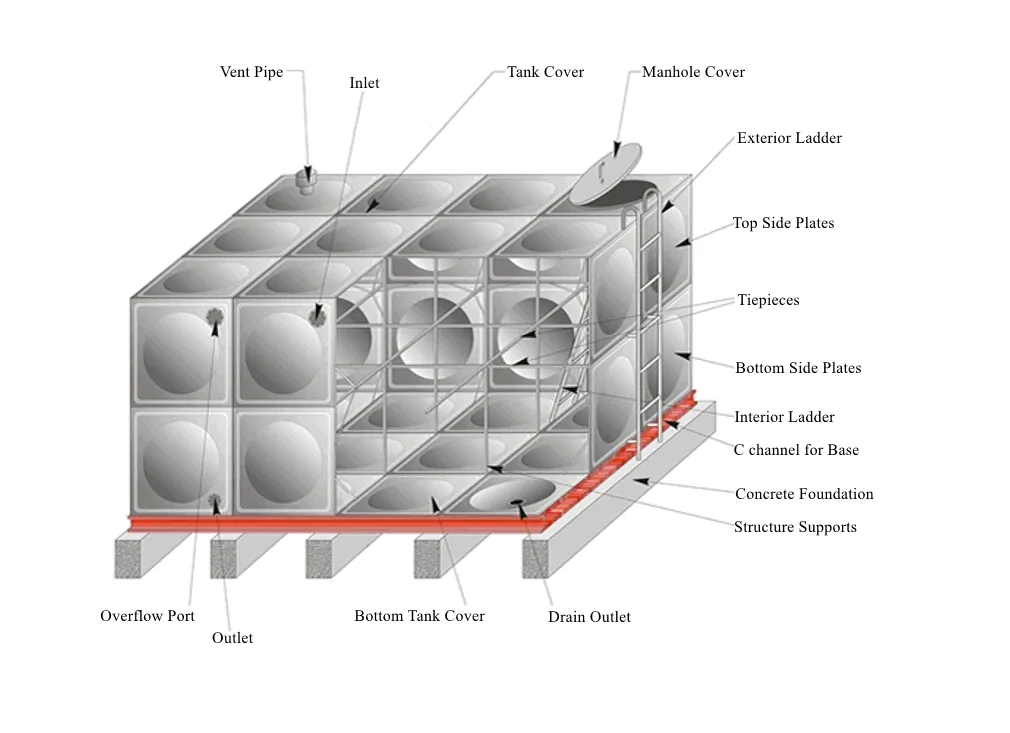loading...
- No. 9, Xingyuan South Street, Dongwaihuan Road, Zaoqiang County, Hengshui, Hebei, China
- admin@zjcomposites.com
- +86 15097380338
- Welcome to visit our website!
industrial ro water system
Understanding Industrial RO Water Systems
Reverse Osmosis (RO) technology has become a cornerstone in modern industrial water treatment processes. With increasing concerns about water quality and the growing demand for pure water in various industrial applications, RO water systems have emerged as a reliable solution for ensuring the availability of clean water. In this article, we will delve into the fundamentals of industrial RO water systems, exploring their working principles, benefits, applications, and best practices for maintenance.
How Industrial RO Water Systems Work
At its core, reverse osmosis is a filtration process that uses a semipermeable membrane to separate impurities from water. In an industrial RO system, water is forced through this membrane under pressure. The membrane allows water molecules to pass through while rejecting larger molecules such as salts, bacteria, and other contaminants. The result is highly purified water on one side of the membrane and a concentrated waste stream on the other.
The RO process typically involves several pre-treatment steps to enhance efficiency and protect the membrane. These pre-treatments may include sediment filters, carbon filters, and water softeners, which remove larger particles, chlorine, and hardness, respectively. Ensuring the feed water is adequately treated before it reaches the RO membrane is vital for prolonging the lifespan of the system and maintaining optimal performance.
Benefits of Industrial RO Water Systems
1. High Purity Water One of the most significant benefits of RO systems is their ability to remove up to 99% of dissolved salts and impurities. This makes RO-treated water suitable for various applications, including pharmaceuticals, food and beverage manufacturing, and electronics manufacturing.
2. Cost-Efficiency Although the initial setup cost of an industrial RO system can be high, the long-term savings are substantial. RO systems can reduce the need for expensive chemical treatments and waste disposal costs. Additionally, they minimize water wastage compared to traditional treatment methods.
3. Scalability Industrial RO systems can be designed to meet specific needs, whether for small manufacturing processes or large-scale operations. This scalability makes them an ideal choice for various industries, allowing facilities to adjust capacity according to demand.
4. Environmental Impact By utilizing RO technology, industries can significantly reduce their environmental footprint. The system conserves water resources and minimizes pollution by producing concentrated waste that can often be recycled or disposed of responsibly.
industrial ro water system

Applications of RO Water Systems
Industrial RO water systems are versatile and can be used in a wide array of applications, including
- Pharmaceuticals For drug manufacturing and formulation, where water quality is paramount. - Food and Beverage To provide pure water for production processes, ensuring safety and compliance with health standards. - Electronics Manufacturing For producing ultra-pure water required for cleaning components and in processes like semiconductor manufacturing. - Power Plants To treat boiler feed water, helping prevent scale buildup and corrosion.
Maintenance Best Practices
To ensure the longevity and efficiency of an industrial RO water system, regular maintenance is essential. Here are some best practices
1. Regular Monitoring Keep track of performance metrics, such as feed water quality, permeate flow rates, and pressure differentials across the membrane. Regular monitoring helps identify potential issues before they escalate.
2. Periodic Cleaning Over time, membranes can become fouled with contaminants. Scheduled cleaning using appropriate cleaning solutions can restore membrane performance.
3. Pre-Treatment System Maintenance Regular checks and replacements of pre-treatment components like filters and softeners are vital for the overall performance of the RO system.
4. Data Logging and Analysis Implement a data logging system to record operational parameters, facilitating trend analysis and proactive maintenance.
In conclusion, industrial RO water systems are vital for many sectors requiring high-quality water. Their efficiency, scalability, and environmental benefits make them a compelling choice for businesses facing water treatment challenges. With proper maintenance and monitoring, these systems can provide reliable service, ensuring that industries meet their water quality needs efficiently.
-
The Rise of FRP Profiles: Strong, Lightweight, and Built to LastNewsJul.14,2025
-
SMC Panel Tanks: A Modern Water Storage Solution for All EnvironmentsNewsJul.14,2025
-
GRP Grating: A Modern Solution for Safe and Durable Access SystemsNewsJul.14,2025
-
Galvanized Steel Water Tanks: Durable, Reliable, and Ready for UseNewsJul.14,2025
-
FRP Mini Mesh Grating: The Safer, Smarter Flooring SolutionNewsJul.14,2025
-
Exploring FRP Vessels: Durable Solutions for Modern Fluid HandlingNewsJul.14,2025
-
GRP Structures: The Future of Lightweight, High-Performance EngineeringNewsJun.20,2025
